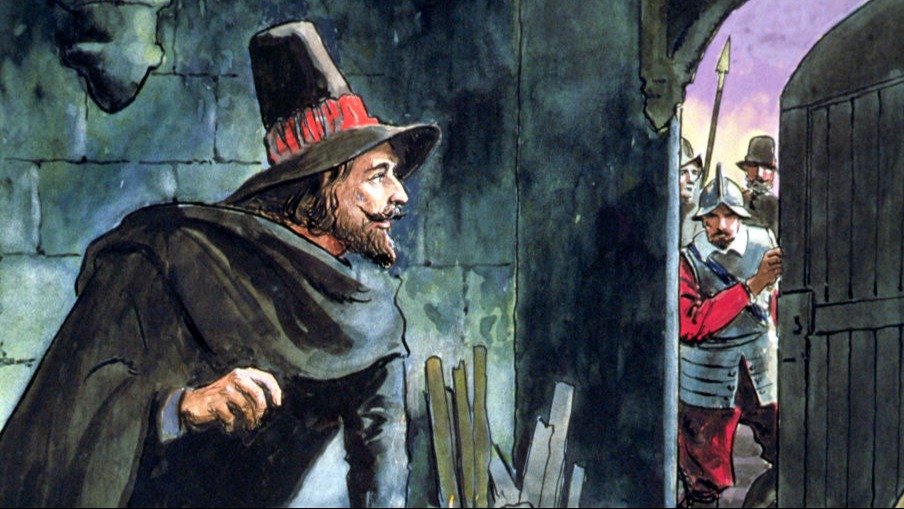
Get the latest financial news, insights and expert analysis from our award-winning MoneyWeek team, to help you understand what really matters when it comes to your finances.
You are now subscribed
Your newsletter sign-up was successful
Want to add more newsletters?
Everyone knows the story of the "Gunpowder Plot", celebrated every year on Bonfire Night. A cell of religious fundamentalists plotted what would be known today as a "terrorist outrage", with the intention of blowing up the King and the Houses of Parliament, and restoring a Catholic monarch to the throne.
Unfortunately, one of the conspirators had a fit of conscience, and wrote to Lord Monteagle, a Catholic peer, to warn him to steer clear of Parliament. Monteagle gave the letter to the Secretary of State, who ordered a search of the vaults on the night of 4 November. Guy Fawkes, another of the conspirators, was caught red-handed, among rather a lot of barrels of gunpowder.
Fawkes was arrested and sent to the Tower, where he was interrogated. But he didn't talk immediately. Then, as now, torture was illegal. But all it took was a note from the King to make it legal. So on 6 November, King James agreed that, "the gentler tortours are to be first used unto him, et sic per gradus ad ima tenditur [And so by degrees proceeding to the worst]".
Try 6 free issues of MoneyWeek today
Get unparalleled financial insight, analysis and expert opinion you can profit from.

Sign up to Money Morning
Don't miss the latest investment and personal finances news, market analysis, plus money-saving tips with our free twice-daily newsletter
Don't miss the latest investment and personal finances news, market analysis, plus money-saving tips with our free twice-daily newsletter
It worked, and Fawkes gave up the names of his co-conspirators. And on this day in 1606, Guy Fawkes, along with Robert Winter, Thomas Winter, John Grant, Ambrose Rookwood, Robert Keyes, Thomas Bates, and Sir Everard Digby, went on trial at Westminster Hall accused of High Treason. The trial lasted one day.
Not surprisingly, all were found guilty, and all were sentenced to that most medieval of punishments – to be hanged, drawn and quartered. They were to be dragged behind a horse from the prison to their place of execution, where they would be hanged until not quite dead. Then, as described in the transcript of the trial, "he is to be cut down alive, and to have his Privy Parts cut off and burnt before his Face", then disembowelled, his heart ripped out, his head cut off, and what was left of him cut into four pieces, to be "set up in some high and eminent Place, to the View and Detestation of Men and to become a Prey for the Fowls of the Air".
The sentences were carried out on 30 and 31 January.
Get the latest financial news, insights and expert analysis from our award-winning MoneyWeek team, to help you understand what really matters when it comes to your finances.

-
 Inheritance fights are up 80% – here’s why and what to do if it happens to you
Inheritance fights are up 80% – here’s why and what to do if it happens to youFamilies are increasingly disputing inheritances, as age-related and economic factors force a tussle over the last will and testament of loved ones. What should you do if you find yourself in the middle of a fight over money?
-
 The northern powerhouse city where first-time buyers are snapping up properties
The northern powerhouse city where first-time buyers are snapping up propertiesFirst-time buyers are “casting their nets” wider to find properties that match their budgets and lifestyles. We look at the top areas for first-time buyers.
